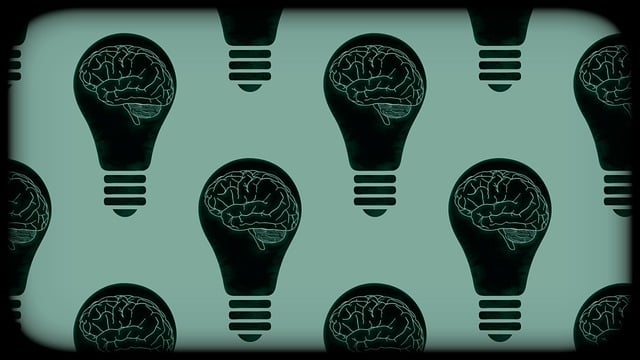Englewood Bipolar Disorder Therapy advocates for personalized self-care routines as a key strategy for managing mental wellness, especially for individuals with bipolar disorder. Through community outreach programs and evidence-based strategies, this approach enables better symptom control, emotional stability, and improved quality of life. By fostering confidence, setting boundaries, and prioritizing self-care, specialized centers empower patients to navigate challenges and achieve long-term mental health goals.
“Unwind, rejuvenate, and prioritize your mental wellness with our comprehensive guide. In today’s fast-paced world, self-care is not a luxury but a necessity. We explore the intricate relationship between mental health and self-care practices, offering insights tailored for individuals managing conditions like Englewood Bipolar Disorder Therapy.
From understanding the fundamentals of mental wellness to crafting personalized routines, this article equips you with strategies to enhance your well-being. Discover how to recognize your unique needs, integrate self-care into daily life, and cultivate resilience for long-term mental health.”
- Understanding Mental Wellness and Self-Care
- Recognizing Personal Needs and Limits with Englewood Bipolar Disorder Therapy
- Crafting a Customized Self-Care Routine
- Integrating Self-Care into Daily Life for Long-Term Mental Health
Understanding Mental Wellness and Self-Care

Mental wellness is a crucial aspect of overall health and well-being. It encompasses our emotional, psychological, and social state, influencing how we think, feel, and act in various situations. While engaging in self-care practices, individuals with mental health conditions like bipolar disorder can find respite and improve their quality of life. Self-care is not one-size-fits-all; it involves tailoring routines to suit individual needs, ensuring a balanced approach that nurtures the mind, body, and spirit.
Englewood Bipolar Disorder Therapy emphasizes the importance of self-care as a tool for managing symptoms and enhancing overall mental wellness. Through community outreach program implementations, individuals can gain access to resources and support networks, fostering confidence boosting and self-esteem improvement. By integrating evidence-based strategies into daily routines, people with bipolar disorder can better navigate their condition, leading to improved stability and a greater sense of control over their lives.
Recognizing Personal Needs and Limits with Englewood Bipolar Disorder Therapy

Developing a self-care routine tailored to individual needs is essential for maintaining mental wellness, especially for those living with bipolar disorder. Englewood Bipolar Disorder Therapy emphasizes the importance of recognizing personal limits and nurturing emotional well-being. This involves understanding one’s unique triggers and coping mechanisms. By practicing mindfulness meditation, individuals can learn to navigate mood swings and stabilize their minds.
Through therapy sessions, patients are equipped with emotional well-being promotion techniques to manage stress effectively. Stress management workshops organized by specialized centers play a pivotal role in empowering individuals to set boundaries and prioritize self-care. These practices collectively contribute to fostering resilience, enabling those with bipolar disorder to lead fulfilling lives while maintaining optimal mental health.
Crafting a Customized Self-Care Routine

Crafting a Customized Self-Care Routine is a transformative process that empowers individuals to take charge of their mental wellness. It involves understanding one’s unique needs, triggers, and coping mechanisms. This personalized journey begins with self-awareness exercises, where individuals reflect on their emotions, behaviors, and thought patterns. By identifying specific areas for improvement, they can tailor activities that align with their goals. For instance, someone managing Englewood Bipolar Disorder might incorporate regular mood tracking and mindfulness practices to stabilize their symptoms.
Self-care isn’t one-size-fits-all; it’s an ongoing dialogue between the individual and their well-being. This dialogue is especially crucial for mental health professionals who must also prioritize their own mental wellness, as part of their role in providing effective care. Regular risk assessments play a vital role here, ensuring they maintain optimal psychological resilience. Ultimately, developing and adhering to a customized self-care routine enables people to lead more balanced lives, fostering overall well-being and enhancing their ability to navigate life’s challenges effectively.
Integrating Self-Care into Daily Life for Long-Term Mental Health

Integrating self-care into daily life is essential for maintaining long-term mental health, especially for individuals managing conditions like bipolar disorder. It’s not just about occasional relaxation; it’s a deliberate practice that becomes a foundation for resilience and emotional stability. By incorporating activities that nurture both mind and body—from regular exercise to mindfulness practices and connecting with supportive communities—people can foster an environment conducive to recovery and overall well-being.
For those in the healthcare field, burnout prevention strategies are crucial alongside their professional duties. Engaging in self-care isn’t selfish; it’s a necessary practice that allows them to show up fully for their patients. This could include participating in stress management workshops, cultivating compassion through practices like mindfulness or compassion cultivation, and setting clear boundaries to maintain a healthy work-life balance. Such strategies not only benefit the healthcare providers but also enhance the care they offer, creating a positive cycle of support and recovery, especially in navigating complex conditions like bipolar disorder, often managed effectively through Englewood Bipolar Disorder Therapy.
Developing a personalized mental wellness self-care routine, tailored through techniques like those offered by Englewood Bipolar Disorder Therapy, is a powerful tool for navigating life’s challenges. By recognizing our unique needs and setting healthy boundaries, we can foster resilience and improve long-term mental health. Integrating self-care practices into daily life encourages a balanced approach, promoting overall well-being and a more fulfilling life.














